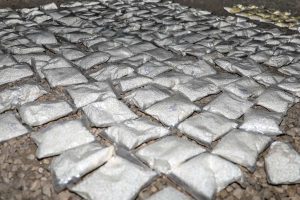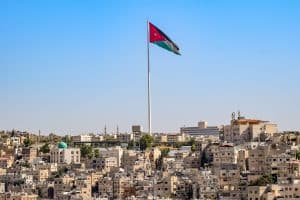Amid rising COVID-19 infection rates and tighter restrictions the Jordan Interior Minister Samir Mobeideen and Justice Minister Bassam Talhouni, ignored the country’s COVID-19 measures by attending a dinner party. The ministers handed in their resignations after public outburst. Several days later Jordan’s Prime Minister Bisher Al Khasawneh reshuffled his cabinet, appointing two new interior and justice ministers, as well as replacing eight other ministers. The aim of the reshuffle is to help increase the pace of the reforms guided by the International Monetary Fund (IMF), which are regarded to be essential for the country to recover from the COVID-19 pandemic and its following economic downturn. The cabinet reshuffle is also a response to the government’s floundering in dealing with the COVID-19 pandemic.
Interior and justice ministers resign after public outcry
When COVID-19 cases on the rise, as a consequence of the spread of the more infectious British variant, the Jordanian government introduced a more serious lockdown. On February 25 the government extended the curfew hours and tightened enforcement. The rise of infections were due to “people flouting restrictions on movement”, so even military personal was mobilized to enforce the tight COVID-19 restrictions. The interior and justice ministers, responsible for the enforcement of the restrictions, meanwhile attended a dinner party, even though that was not allowed. Given the newly imposed lockdown, with dozens of arrests and shutdowns of shops and businesses, this led to widespread outrage. The following resignation of the ministers is supposed to show the government’s commitment to enforce the new restrictions.
Tradition of cabinet reshuffles
Several days after King Abdullah II accepted the resignation of the interior and justice ministers, Prime Minister Al Khasawneh reshuffled his cabinet for the first time since he assumed office in October of 2020. With most of the members of parliament being independents, it is not uncommon for the prime minister to reshuffle the cabinet. This is often done to alleviate public dismay and to expert with new policies. In this case the government’s struggle with the rise of COVID-19 infections will have impacted the decision. Certainly after the violation of COVID-19 measures by the interior and justice ministers the government needed to restore its credibility.
Cabinet reshuffle to accelerate IMF-guided reforms
In 2020 the Jordanian economy declined with 3%, as a result of the COVID-19 pandemic and a year of lockdown measures. For the country’s economy it has been the worst year in decades. To combat the economic crisis Parliament passed the new government budget of finance minister Mohammed al-Ississ, which hopes to ensure financial stability in the years to come. He also negotiated a four-year deal with the IMF, which signals IMF confidence in the government’s ability to pass the needed reforms. IMF predictions that the Jordanian economy will grow again in 2021 have a positive impact on the investment climate. The combination of investor confidence and commitment to IMF reforms will help to maintain stable Jordanian sovereign credit ratings in the near future.
To accelerate the IMF reforms and reaffirm its commitment to them, the Prime Minister Al Khasawneh has appointed Mohammad Najjar as minister of water and irrigation, Ali Ayed as minister of culture, Wajih Azaizeh as minister of transport, Ahmad Ziadat as minister of justice and Khaled Hneifat as minister of agriculture. Furthermore, the King approved the appointment of Mohammad Khair Abu Qudais as minister of education and minister of scientific research, Mahmoud Kharabsheh as minister of state for legal affairs, Maen Qatamin as minister of labour, Sakher Dudin as minister for media affairs and Mazen Faraya as minister of interior. It is to hope that the new cabinet will indeed be able to get the country back on its feet after a year marked by COVID-19 restrictions and economic downturn.
Sources: Aljazeera1, Aljazeera2, ArabNews, TheJordanTimes Reuters, TheNationalNews1, TheNationalNews2,
Image: Wikimedia



